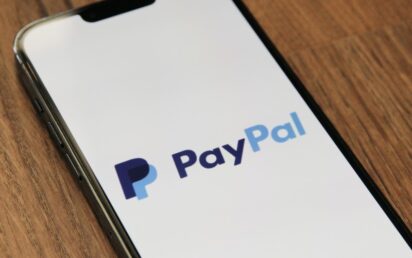PayPal is synonymous with instant and safe online payments. The PayPal software is designed to allow financial transactions to occur over the internet, using devices like smartphones and computers – and since the pandemic has supercharged eCommerce, PayPal has gone from strength to strength as the preferred payment option for retailers and customers alike.
Now a publicly traded company with 2021 revenue of $25.4 billion and 286 million users, PayPal has a long and storied history that was the catalyst for the fintech industry.
The PayPal Timeline
- 1998: Max Levchin, Peter Theil, and Luke Nosek launch a business called Confinity, designed to offer payment systems for Palm Pilots
- 1999: Launched PayPal as part of the Confinity product
- 2000: Merged with Elon Musk’s X.com
- 2001: X.com was not a popular name; became known as PayPal
- 2002: Initial Public Offering (IPO) on NASDAQ – eBay buy PayPal for $1.5 billion dollars, after some restructuring that sees Musk removed as CEO.
The partnership with eBay saw PayPal used as the payment processor of choice for the online auction site.
- 2007: PayPal obtain an EU Banking Licence, which means that they can better serve the EU, and move their head office to Luxembourg. By this point, PayPal had 35 million customers across Europe, and 15 million in the UK
- 2010: PayPal registered 100 million active users across 190 markets, with 25 currencies available.
- 2015: PayPal legally separated from eBay and became a publicly traded company in its own right.
Alternative Payment Options
The PayPal unique offering – a hassle-free, secure, and mostly free way to make and receive payments – has made it a standout company in the fintech sphere, but some smart investments along the way has helped it to have even more power. PayPal has acquired iZettle, Venmo, and Hyperjar since splitting from eBay.
Their position as the perfect company to lead the migration to online shopping comes not only from their seamless transactions and simple structure, but also from the fact that what they provide actually works for both businesses and for customers.
PayPal Online
It is rare to find an online shopping or eCommerce outlet that does not accept PayPal as a payment option. In some cases, PayPal is the preferred option for businesses, removing the need for additional merchant services and giving better rates than some business banks.
PayPal is the most widely accepted online payment method apart from credit and debit card payments.
PayPal and Real-World Purchases
Brick-and-mortar stores have been making it easier for customers to make payments, using contactless technology and accepting both Apple Pay and Android Pay as a matter of course – but more and more physical retail stores are getting used to the idea that there are other options for payments, including PayPal. The list of stores grows every day, and include health and beauty, fashion, and electronic retailers.
Since PayPal monitors every transaction 24/7, it has garnered a reputation for trustworthiness and safety for both buyers and sellers. This moves us into the realm of security and purchase protection which are the biggest selling points for the millions of PayPal users.
Security and Fund Protection
On top of their 24/7 transaction monitoring, PayPal also offers chargebacks and extra security surrounding your own personal information. These features are attractive to many different online platforms where transactional security is hugely important. This works both ways and gives the online platform legitimacy to its customers.
For example, according to bestcasinobonuses.co.uk, casinos that accept PayPal are considered to be the safest and most secure on the market. This is because PayPal will only associate their company with online providers that have a proven track record in safety and trustworthiness.
While signing up for a PayPal account is relatively simple – you only really need an email account – getting into your account and accessing any funds is protected through end-to-end encryption, two-step verification, and fraud prevention algorithms.
To log in to your account, you can set up a security key. This key is a PIN that is sent to your mobile phone, either through WhatsApp or as an SMS. You will need to input this code as well as your password to be able to get access to your account. This added layer of security means that even if hackers get your email address and password, they won’t be able to get to your funds unless they also have access to your phone.
Customers purchasing through PayPal are protected by the company if what they receive doesn’t turn up, is damaged, or is not as described. Purchase protection services will accept dispute requests and make investigations to ascertain whether a refund is needed.


